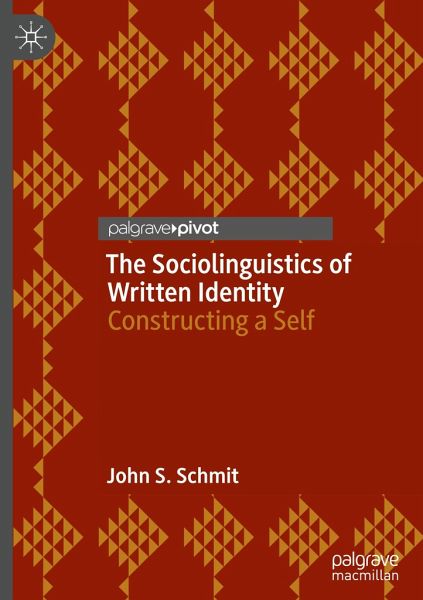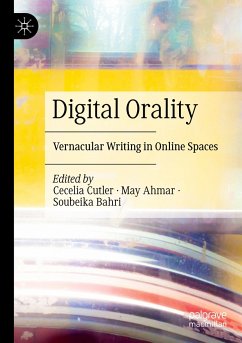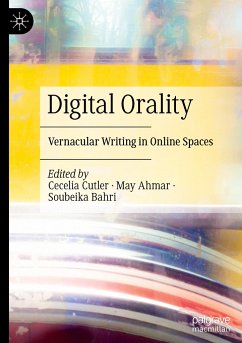
The Sociolinguistics of Written Identity
Constructing a Self

PAYBACK Punkte
17 °P sammeln!
This book examines the ways in which a writer's presentation of self can achieve or impede access to power. Conversations about written voice and style have traditionally revolved around the aesthetics of stylistic choice. These choices, while they help establish a writer's presence in a text, too often ignore the needs of written identity as it crosses genres, disciplines, and rhetorical purposes. In contrast to stylistic investigations of a writer's "voice" and its various components-diction, detail, imagery, syntax, and tone, for example-this book focuses on language variation and the lingu...
This book examines the ways in which a writer's presentation of self can achieve or impede access to power. Conversations about written voice and style have traditionally revolved around the aesthetics of stylistic choice. These choices, while they help establish a writer's presence in a text, too often ignore the needs of written identity as it crosses genres, disciplines, and rhetorical purposes. In contrast to stylistic investigations of a writer's "voice" and its various components-diction, detail, imagery, syntax, and tone, for example-this book focuses on language variation and the linguistic features of a writer's presence in a text, as well as the establishment of a writer's social, cultural, and personal identity in a given text. The author attempts to explain the methods by which writers present themselves to their audiences. This book will be of particular interest to students and teachers of rhetoric and composition studies, as well as writers more broadly.












